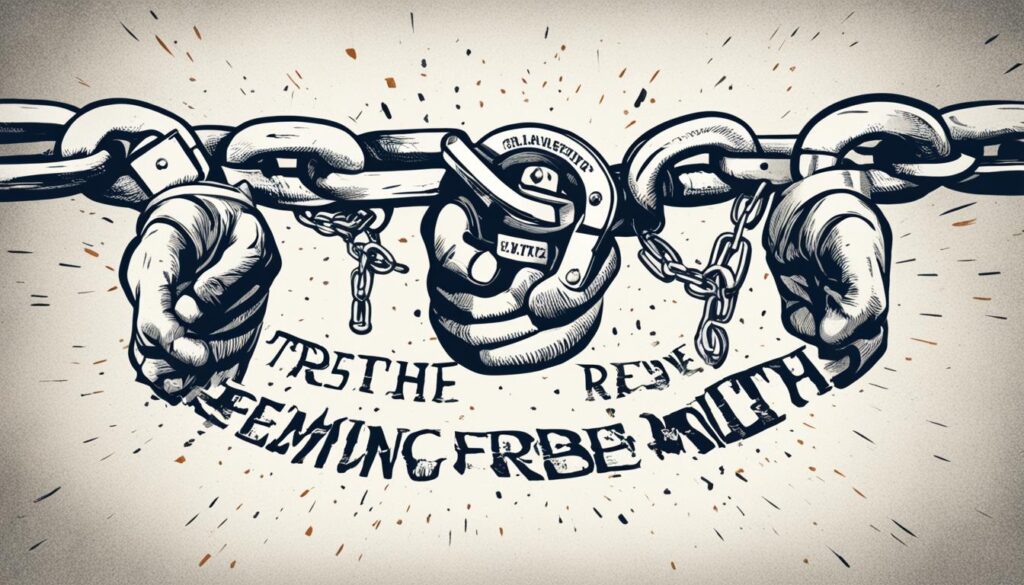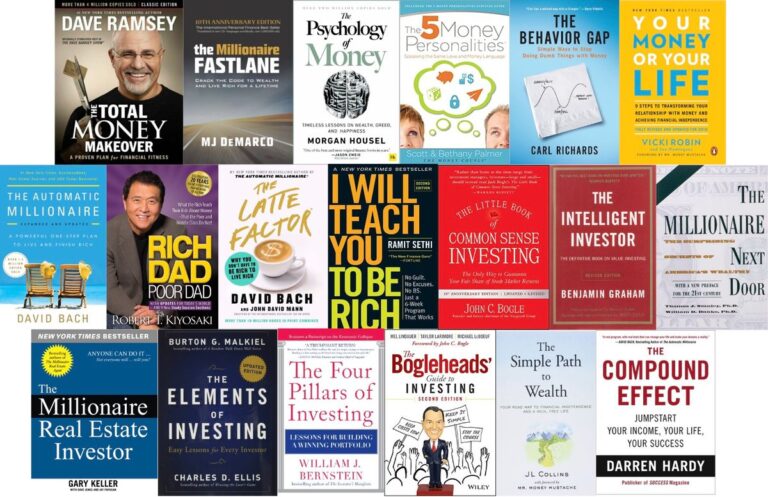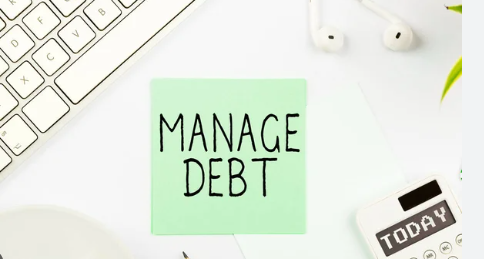Dealing with personal finance can be tough, filled with many wrong ideas about debt and credit. CNBC says experts have cleared up many money myths that mislead Americans. These myths cover things like the effect of small daily costs, the best loan rates, and the role of financial advisors.
It’s key to know the difference between what’s true and what’s not in finance. This knowledge helps you make better decisions about your money and debt. We’ll look at nine common debt myths and give you facts to help you choose wisely.
Key Takeaways
- Many common financial beliefs are actually myths that can lead to poor decision-making.
- Understanding the truth behind these myths is essential for achieving financial stability and reaching your goals.
- Debunking myths about small expenses, loan rates, financial advisors, credit reports, and emergency savings can empower you to make more informed choices.
- Recognizing the distinction between financial fact and fiction is a crucial step in taking control of your debt and credit.
- By separating myth from reality, you can navigate the complexities of personal finance more effectively and avoid costly mistakes.
Myth: Giving Up Daily Coffee Purchase is a Financial Game-Changer
Many think cutting small joys like daily coffee is key to saving money. But, it’s more important to make smart choices on big expenses like housing and transportation. While saving every penny helps, big financial decisions have a bigger impact. So, it’s better to budget for things you really enjoy rather than cutting out all small pleasures.
Sacrificing Small Expenses Isn’t as Critical as Big Decisions
Americans buy over 4 million Starbucks drinks every day. Yet, nearly half of Americans often live paycheck-to-paycheck, with no savings left. Cutting a $5 daily Starbucks latte could save someone $150 monthly or $2,000 yearly, says David Bach.
By age 65, Bach believes saving this amount could lead to over $2 million, assuming an 11% annual growth. But, this overlooks the bigger financial picture. A $3 daily coffee habit could earn $50,000 in 30 years, a small part of Bach’s total.
Also, bankruptcies often stem from big issues like medical bills, losing a job, foreclosure, or divorce, not just small luxuries.
Budgeting for Discretionary Expenses and Prioritizing Purchases
It’s crucial to budget for things that make us happy, not just cut them out. Now, housing, healthcare, and education take up 75% of a family’s discretionary income, up from 50% in the 1970s. So, daily coffee seems less significant compared to these big financial decisions.
It’s about finding a balance between saving and enjoying life. By focusing on major financial decisions and managing discretionary spending wisely, you can be financially stable and happy. You don’t have to give up all your daily joys.
Myth: Auto Dealers Give You the Best Loan Rate
Many people think financing a car through the dealer means getting the best rates. But this isn’t always true. Experts say to look at auto loan rates, dealer financing, and shopping for auto loans to find the best deal.
Dealers might offer higher interest rates because they make more money that way. So, the rate from the dealer might not be the lowest. It’s smarter to check with your bank or credit union, which could save you a lot of money.
To get the best auto loan rates, don’t just look at the dealer. Take time to compare offers from different lenders. This can really change how much you pay for the car.
| Lender | Interest Rate | Monthly Payment | Total Interest Paid |
|---|---|---|---|
| Dealer Financing | 9.5% | $450 | $3,600 |
| Local Credit Union | 6.9% | $425 | $2,550 |
| National Bank | 8.2% | $440 | $3,120 |
The table shows that dealer financing has a higher auto loan rate than the credit union. This means a higher monthly payment and more total interest paid. By looking beyond the dealer, you can find a better deal.
“Consumers should never assume the dealer is offering the best loan rate. It’s critical to shop around and compare offers from multiple lenders to get the most competitive auto loan rates.”
– Financial Advisor, XYZ Wealth Management
In conclusion, the idea that dealers offer the best auto loan rates is a myth. By checking dealer financing and other lenders, you could save a lot of money over the loan’s life.

Myth: Financial ‘Advice’ Always Has Your Best Interests at Heart
Many think all financial advisors are “fiduciaries,” legally bound to act for their clients. But, this isn’t always true. A lot of financial experts don’t have to act as fiduciaries. This means they might put their own interests before yours.
Understanding the Difference Between Fiduciary and Non-Fiduciary Advisors
It’s key to know the difference between fiduciary and non-fiduciary financial advisors. Fiduciary advisors must act for their clients’ best interests. Non-fiduciary advisors just need to suggest things that are “suitable” for you, which might not always be best for your future.
Before working with a financial advisor, make sure to ask if they are a fiduciary. This ensures they put your needs first. It helps avoid conflicts of interest and gets you unbiased advice.
| Fiduciary Advisors | Non-Fiduciary Advisors |
|---|---|
| – Legally required to act in the client’s best interests – Provide objective, impartial advice – Transparent about fees and any potential conflicts of interest |
– Only required to provide “suitable” recommendations – May prioritize their own interests over the client’s – May receive commissions or other incentives for certain product recommendations |
Knowing the difference between fiduciary and non-fiduciary advisors helps you make better choices. It ensures your financial advisor’s main goal is your long-term success.
Myth: You Must Pay for Frequent Credit Report Access
Before, people had to pay to see their credit reports often. But, the COVID-19 pandemic changed this. Now, credit bureaus give free weekly credit report access through AnnualCreditReport.com. This means you don’t have to pay for credit monitoring services to know your credit score.
Before, checking your credit report often was expensive. But now, it’s free. The Fair Credit Reporting Act (FCRA) lets you get a free credit report from each of three big credit bureaus (Equifax, Experian, and TransUnion) every 12 months. During the pandemic, you can get a free report from each bureau every week. This makes it easy to keep an eye on your credit report access and credit monitoring without paying.
Using this free service, you can keep track of your financial health. You can spot identity theft, check if your report info is right, and make smart money choices. Regular checks help you stay on top of your finances.
Remember, checking your credit reports on AnnualCreditReport.com is free. It won’t affect your free credit reports or credit score. This tool helps you manage your finances better and make smart credit decisions.
“Checking your own credit report doesn’t hurt your credit score. It’s a good habit to stay informed about your credit position.”
In conclusion, the idea that you must pay for credit report access is wrong. Use the free weekly credit reports on AnnualCreditReport.com. Stay informed about your finances without paying for credit monitoring services.
Myth: Hiring an Advisor Only Benefits the Wealthy
Many think financial advice is only for the rich. But, it can help people at all income levels. Experts say getting holistic financial advice can lead to a 7% income boost each year. This is by avoiding costly errors and using financial chances well.
The Potential Income Boost from Holistic Financial Advice
A Vanguard study showed that having a financial advisor can lead to 3% more earnings on investments. Over time, this can add up, showing the real value of expert financial advice.
Different Fee Models for Financial Advice
Now, financial advisors can help people of all wealth levels, not just the rich. They usually charge 1% yearly on managed assets. But, there are also hourly or project-based rates, making advice affordable for more people.
Getting professional financial help can greatly improve your financial health. It’s not just for the wealthy. It’s for anyone looking to manage their money better.
“Seeking financial advice is beneficial for everyone, not just those with big money-making goals.”
Myth: Paying Off Your Mortgage Isn’t Worth It
Many think it’s smarter to invest extra cash rather than pay off a mortgage early. But, experts say paying down a mortgage is like getting a sure return, similar to FDIC-insured investments. This is a better comparison than the unpredictable stock market.
Paying off a mortgage payoff early has many good reasons. It gives you a feeling of freedom and security. Many people like owning their home without a mortgage. Plus, getting rid of mortgage interest rates can save you a lot of money over time.
Whether to pay off a mortgage early depends on your situation. But, looking at the long-term benefits can help you decide. Understanding the value of early mortgage payoff lets homeowners make choices that fit their financial goals.
| Benefit | Description |
|---|---|
| Guaranteed “Return” | Paying off a mortgage gives you a sure return, like the loan’s interest rate. This is often better than FDIC-insured investments. |
| Reduced Interest Costs | Early mortgage payoff can save homeowners thousands of dollars in interest over the loan’s life. |
| Emotional Freedom | Having a home without a mortgage means more financial security and peace of mind for many people. |
“Paying down a mortgage is akin to a guaranteed ‘return’ comparable to FDIC-insured investments, which is a more appropriate benchmark than the stock market.”
Deciding to pay off a mortgage early needs thought about your financial situation and goals. Weighing the pros and cons can help homeowners make a choice that fits their long-term plans and brings financial stability.
Myth: You Don’t Need Emergency Savings
Many people think they don’t need emergency savings. But, Suze Orman, a finance expert, calls this idea “the most egregious myth out there.” Emergency savings are key to having a safety net. They help cover costs if you lose your job or face other financial problems.
It’s important to have an emergency fund with enough money for three to six months of living expenses. Using only credit cards in a crisis can lead to high-interest debt. A separate emergency savings account helps you stay financially stable during tough times.
The importance of emergency savings can’t be ignored. These funds prevent a small financial issue from becoming a big one. They give you peace of mind and let you focus on getting back on track without worrying about money.
“An emergency fund is one of the most important financial tools you can have. It’s your protection against life’s unexpected events.” – Suze Orman
Thinking you don’t need emergency savings is risky. It can leave you open to financial trouble. Everyone should make it a priority to save for emergencies, no matter their income or financial situation.
Debt Myths
It’s key to clear up false ideas about credit and debt for better financial choices. Many believe things about debt and credit that aren’t true. These beliefs can cause harm if not checked.
A common credit card myth is that closing unused cards will improve your credit score. But, this can actually lower your credit utilization ratio and hurt your score. Also, the idea that paying off debts will instantly fix your credit report is a credit score myth. While paying off debt is crucial, it takes time for your credit history to show the improvement.
Another debt repayment myth is thinking that bankruptcy will stop you from getting credit again. Bankruptcy stays on your credit report for years, but it doesn’t mean you can’t get credit in the future. With careful financial behavior, you can rebuild your credit after bankruptcy.
| Myth | Reality |
|---|---|
| Closing unused credit cards boosts credit score | Can hurt credit utilization ratio and lower score |
| Paying off debts instantly repairs credit report | Positive impact takes time to be reflected |
| Bankruptcy prevents future credit approval | Bankruptcy stays on report but doesn’t permanently disqualify |
Knowing and clearing up these common credit card myths, credit score myths, and debt repayment myths helps people make better financial choices. This leads to reaching financial goals and having a strong credit profile.
“The first step to achieving financial freedom is dispelling the myths that hold you back.”
Conclusion
Understanding personal finance can seem tough, with many myths making it hard to know what’s right. By clearing up these myths, people can make better choices for their money.
Many think cutting small expenses, like skipping a daily coffee, can greatly improve finances. But, the truth is, big decisions like managing debt and planning for retirement matter more. These choices have a bigger effect on financial health.
Some believe all financial advisors work only for their clients. But, it’s key to know the difference between those who must act in your best interest and those who might not. This knowledge helps in choosing the right financial advice.
It’s vital to debunk common financial myths and bust debt myths to make smart money choices. Knowing the truth helps avoid mistakes and improve financial health.
“The truth shall set you free, but first it will piss you off.” – Gloria Steinem
This article shows how common financial myths can lead to bad outcomes if ignored. By facing these truths, people can confidently make the right money decisions for themselves.

In the end, knowing the difference between fact and fiction in finance is key to financial security. By busting debt myths and making informed financial decisions, people can take charge of their money and aim for long-term success.
Myths and Realities Recap
In this article, we looked at several debt myths and what’s really true. The debt myths summary shows us to not mix up facts and fiction in finance.
It’s not true that cutting small daily costs leads to financial success. Big financial decisions like picking the right loan terms and working with a financial advisor are crucial. Also, being smart with credit card usage and using debt wisely, like for mortgages and student loans, can help.
The key takeaways from this article stress the value of knowing about finance. By knowing the truth about myths, people can handle their money better. This leads to better financial health in the long run.







